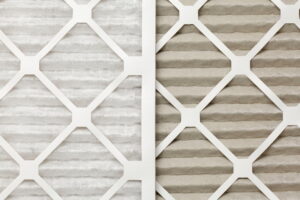 If you’re interested in improving your indoor air quality in Colorado Springs, CO this year—and many people are—one of the first options you’ll look at is an air filtration system. Air filters are usually the start of any indoor air quality system, since they’re effective at taking care of many of the larger particles circulating through the air and don’t use any power the way air filtration systems do. They’re safe, affordable, and for many homes can do the full air cleaning job necessary.
If you’re interested in improving your indoor air quality in Colorado Springs, CO this year—and many people are—one of the first options you’ll look at is an air filtration system. Air filters are usually the start of any indoor air quality system, since they’re effective at taking care of many of the larger particles circulating through the air and don’t use any power the way air filtration systems do. They’re safe, affordable, and for many homes can do the full air cleaning job necessary.
To help you understand how an air filtration system installation can work for your house, we’re going to discuss the measurement of filtration strength. Filters come in a wide range of strengths, from simple mesh filters you find in window ACs to powerful industrial filters used to protect clean rooms and hospitals. What will work for your home? You can trust our experts to help you answer this question.
MERV
The important piece of data to know about an air filter’s strength is its MERV rating. MERV stands for minimum efficiency reporting value and is the standardized method of measuring filter strength as established by ASHRAE (American Society of Heating, Refrigeration, and Air Conditioning Engineers). The higher the MERV number, the smaller the particles it can trap and the more powerful it is. This doesn’t mean it’s necessarily better for your purposes, as we’ll explain later.
MERV 1–4: These are basic panel filters, similar to the one you probably already have for your HVAC system to protect its interior. You’ll also find these in window AC units. They’re rarely strong enough for whole-house filtration purposes.
MERV 5–8: Many homes will use filtration systems that fall in this range. These filters are effective for homes that mostly deal with dust, dander, lint—the basic irritants that move through an HVAC system.
MERV 9–12: At this strength, filters can start trapping odor molecules, gases, chemicals, and volatile organic compounds. These filters are good choices for households with people who suffer from asthma and allergies.
MERV 13–16: This is the upper range for most residential uses. They’re often too powerful for standard HVAC systems. At this strength, filters can affect viruses, bacteria, and other microbes.
MERV 17 and up: These are commercial, industrial, and healthcare facility-rated filters that are too powerful for residential use.
When a Filter Is Too Strong
The reason we have to caution people about filter strength is that a filter that’s too powerful will not only block contaminants, it will block airflow. A filter too thick for the power of the HVAC system will block off air to rooms and increase pressure within the ventilation system, damaging ductwork and eventually the HVAC system itself. This is one of the reasons you need to have professionals handle installing an air filtration system—they know how to find the right match of MERV that won’t overwhelm the HVAC system.
If you need more air-cleaning power than the most powerful MERV filter that will fit your house can give, we’ll work with you to find an air purification system to pair with the filters.
Robbins Heating & Air Conditioning serves Colorado Springs and the surrounding area. Call us today for indoor air quality solutions.
